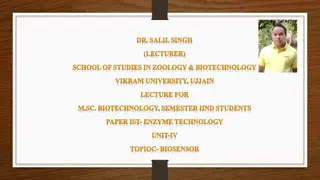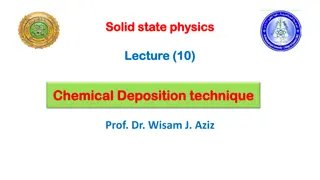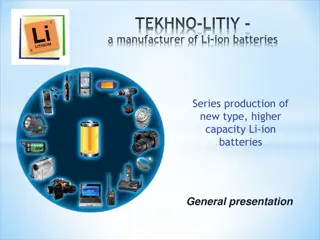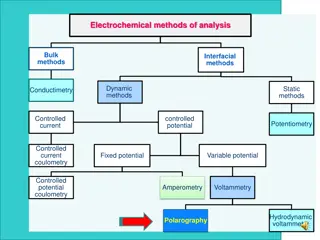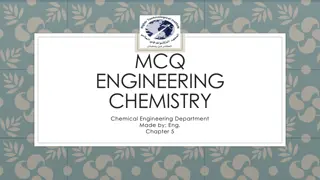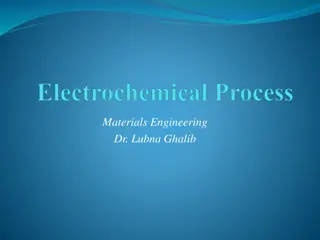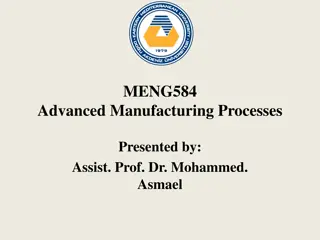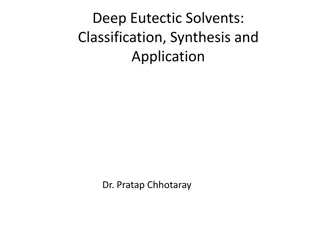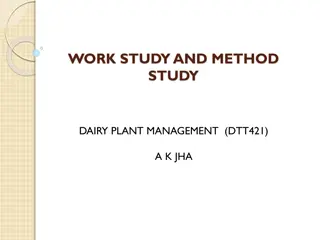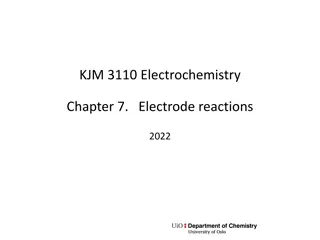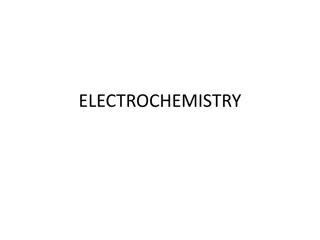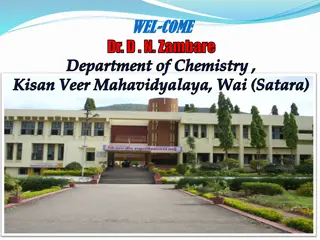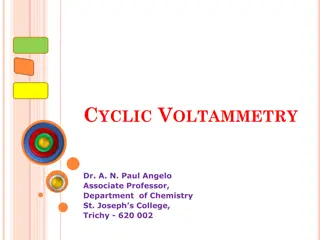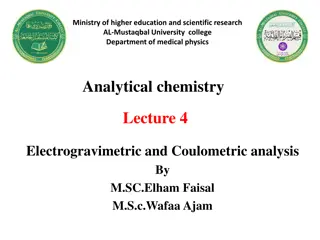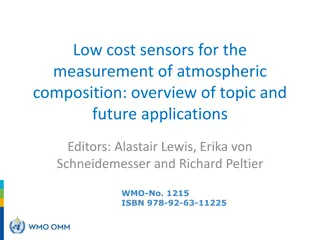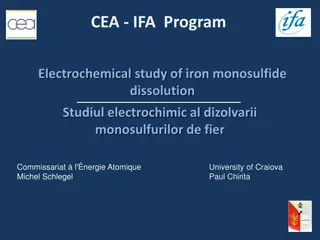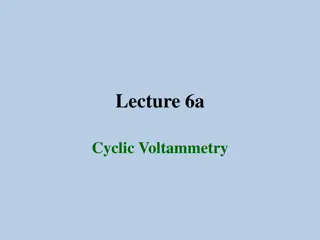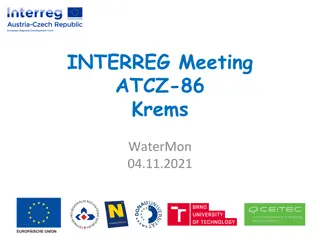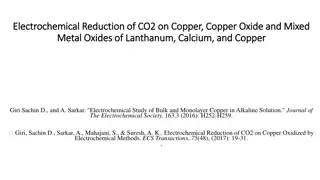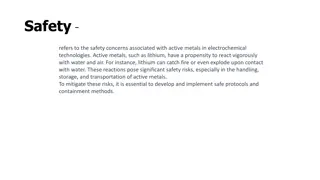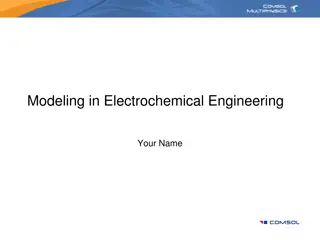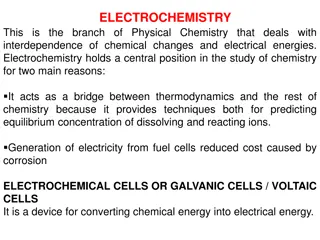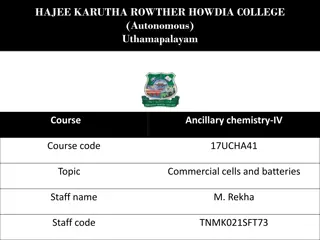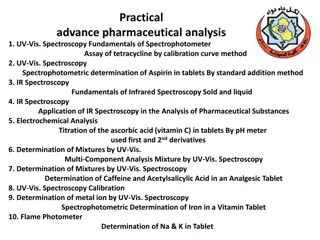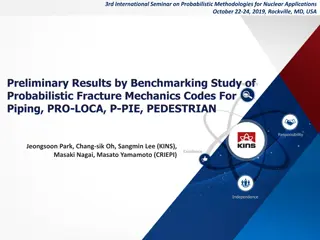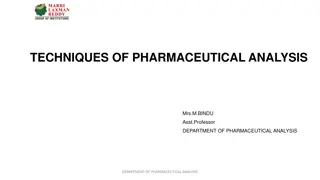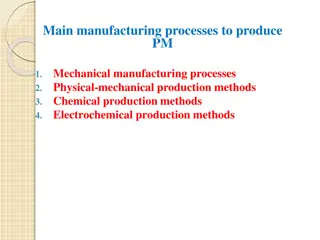How to Effectively Use Study Groups for Better Grades in High School and College
In this article, we\u2019ll unlock the secrets to forming and utilizing study groups effectively, whether you\u2019re looking for a high school study group to ace your next exam or a best college study group to conquer challenging coursework. Read full article https:\/\/explainlearning.com\/blog\/ho
2 views • 3 slides
Faculty-Led Study Abroad Information Session at SHSU Global Engagement Center
SHSU offers faculty-led study abroad courses with specific requirements and responsibilities for faculty members. The programs provide unique teaching experiences, access to academic resources abroad, and opportunities for students to study in various countries. Faculty members play a key role in cr
1 views • 14 slides
Know How to Get an Italy Study Visa and Study in Italy
Want to study in Italy? Get ready to become the proud holder of an Italy study visa, also known as an Italian student visa! But it\u2019s not going to be easy, as you\u2019ll first need to apply for it at your nearest Italian embassy or consulate and then wait for approval from the Department of Edu
3 views • 2 slides
Overview of Biosensors: Applications and Types
Biosensors are advanced analytical devices that convert biological responses into quantifiable signals, comprising bioreceptors and transducers. They play a crucial role in various fields, meeting specific requirements for accuracy, reproducibility, and ease of use. Different types of biosensors suc
9 views • 8 slides
College Study Group What Every Student Needs to Know
Juggling college courses, extracurricular activities, and a social life can feel overwhelming. That\u2019s where the right college study group can be a game-changer. But with so many factors to consider, how do you find the best college study group for you? Explain Learning is here to help you navig
1 views • 4 slides
Understanding Resting Membrane Potential and Excitability in Cells
Explore the concepts of resting membrane potential (RMP), excitability in cells, and the electrochemical basis behind them. Learn about the characteristics of excitable and non-excitable tissues, the factors influencing RMP, and the role of ion distribution in generating the negative charge inside c
0 views • 15 slides
Chemical Deposition Techniques in Solid State Physics
Chemical deposition is a fabrication technique using different chemicals for reactions, allowing coatings to form successfully. Techniques include spray pyrolysis, electrochemical deposition, dip coating, and more. Spray pyrolysis, cost-effective and versatile, is used in various commercial processe
1 views • 25 slides
Advancements in Li-ion Battery Technology by Tekhno-Litiy
Tekhno-Litiy, a prominent manufacturer of Li-ion batteries, introduces higher capacity batteries with exceptional advantages such as high energy density, no memory effect, low self-discharging, and fast charging. They excel in the production of second-generation Li-ion batteries based on nano-struct
0 views • 5 slides
Understanding Polarography in Electrochemical Analysis
Explore the realm of polarography, a type of voltammetry utilizing the dropping mercury electrode (DME) and mercury pool. Learn about classical polarographs, the Ilkovic equation, advantages and disadvantages of mercury drop electrodes, and how to minimize polarographic maxima in electrochemical ana
1 views • 23 slides
Gas Detector Alarms Market Future Prospects 2030
Global Gas Detector Alarms Market Breakdown by Type (Electrochemical sensors, Catalytic sensors, Infrared sensors, Photoionization sensors, Others) by Modality (Portable, Fixed) by End-Use Industry (Oil & Gas, Chemical & Petrochemical, Metal & Mining
1 views • 8 slides
Corrosion Prevention Methods in Chemical Engineering
Define oxidation, reduction, oxidizing agent, reducing agent, standard electrode potential, Nernst equation, and corrosion in the context of chemical engineering. Discuss different forms of corrosion, including uniform corrosion, galvanic corrosion, pitting corrosion, and stress corrosion. Explore m
0 views • 20 slides
Understanding Work Study Methods in Industrial Engineering
Work study involves the systematic examination of methods to improve resource utilization and set performance standards. It includes method study, work measurement, and ergonomics to enhance efficiency and economy in various activities. Method study analyzes work processes for improvement, while wor
1 views • 21 slides
Understanding Electrochemical Processes in Materials Engineering
Electrochemical processes play a crucial role in materials engineering, specifically in the context of corrosion. These processes involve both oxidation (anodic reaction) and reduction (cathodic reaction) reactions occurring simultaneously. Maintaining a balance between these reactions is essential
3 views • 22 slides
Advanced Hybrid Electrochemical Machining Processes
Hybrid electrochemical machining processes combine chemical dissolution and electrochemical dissolution mechanisms with mechanical or thermal assistance to achieve high material removal rates and improved surface quality. Techniques such as laser-assisted chemical etching and ultrasonic-assisted mac
1 views • 26 slides
Deep Eutectic Solvents: Classification, Synthesis, and Applications
Deep Eutectic Solvents (DES) are versatile solvents formed by mixing specific acids and bases. These solvents exhibit unique hydrogen bonding properties, resulting in a lower melting point compared to individual components. DES can be classified into hydrophobic and hydrophilic types, each with dist
3 views • 7 slides
Techniques for Improving Productivity in Dairy Plant Management
Work study and method study are essential techniques for enhancing productivity in dairy plant management. Work study involves method study and work measurement to analyze work processes, develop efficient methods, and determine standard times. Method study focuses on recording and evaluating work m
0 views • 11 slides
Understanding Electrode Reactions in Electrochemistry
Exploring electrode reactions in electrochemistry involves delving into Faraday's law, coulometry, and the importance of sustainable electrode reactions. These concepts help us understand how the quantity of charge passed affects the production or consumption of substances in electrode reactions. As
4 views • 27 slides
Understanding Potentiometry and Electrochemical Cells
Electrochemical cells play a vital role in redox reactions, with potentiometry being a quantitative analysis method based on measuring potentials. These cells consist of two half-cells where reduction and oxidation take place, forming anode and cathode. Reference electrodes like calomel and Ag/AgCl
0 views • 9 slides
Understanding Electrochemistry: Principles and Applications
Electrochemistry is a branch of chemistry focusing on electricity generation from spontaneous chemical reactions and utilizing electrical energy for non-spontaneous transformations. It encompasses important concepts like electrolytes, electrode potential, electrochemical cells, salt bridges, and the
0 views • 20 slides
Understanding Corrosion and Electroplating in Chemistry
Delve into the fascinating world of corrosion and electroplating with a detailed exploration of their principles, processes, and methods of protection. Learn about atmospheric corrosion, immersed corrosion, chemical corrosion, underwater corrosion, and underground corrosion. Discover the electrochem
2 views • 36 slides
Understanding Cyclic Voltammetry in Electrochemical Analysis
Cyclic voltammetry is a crucial electroanalytical technique for studying electrochemical behavior. It involves sweeping potential in a cyclic manner to measure current responses, aiding in understanding redox processes, electron transfer kinetics, and coupled reactions. The technique requires carefu
0 views • 10 slides
Understanding Electrogravimetry for Analytical Chemistry Applications
Electrogravimetry is a technique utilized for the precise separation and quantification of metal ions in a substance. By depositing analytes on electrodes through electrochemical reduction, this method enables accurate determination of metal concentrations in solutions. It finds applications in quan
0 views • 21 slides
Overview of Low-Cost Sensors for Atmospheric Composition Measurement
This publication provides an insightful overview of low-cost sensors for measuring atmospheric composition, covering topics like sensor technologies, applications in atmospheric sciences and air quality management, and evaluation methods. It emphasizes the importance of not only the technical perfor
0 views • 17 slides
Understanding Electrochemical Double Layer Theory
Electrochemical double layer theory explains the distribution of charges and ions at the interface between an electrode and an electrolyte solution. It involves concepts like space charge density, Nernst-Planck equations, and Gouy-Chapman theory to describe the behavior of ions and electric fields i
0 views • 15 slides
Understanding Ion Channels in Cell Communication
Ion channels play a crucial role in cell communication by allowing ions to pass through cell membranes, controlling various cellular functions. Their high transport rate and electrochemical gradient differentiate them from other ion transporter proteins. Ion channels have diverse biological roles, i
0 views • 26 slides
Development of High Entropy Alloy-Based SOFC Anode for Controlled Reformation
Development and testing of a High Entropy Alloy-based Solid Oxide Fuel Cell (SOFC) anode for controlled reformation to improve thermal performance, reduce carbon deposition, and enhance durability. The project involves fabricating cells, electrochemical testing, modeling reformation rates, and scali
0 views • 32 slides
Study on Electrochemical Dissolution of Iron Monosulfide in Nuclear Waste Disposal
Exploration of the electrochemical dissolution of iron monosulfide in the context of nuclear waste disposal, focusing on its impact on redox potential, corrosion products, and transport of radionuclides. The project aims to clarify reaction kinetics, mechanisms of sulfur release, and factors control
0 views • 13 slides
Understanding Cyclic Voltammetry in Electrochemical Methods
Electrochemical methods, such as cyclic voltammetry, are crucial for studying electron transfer processes, redox reactions, and adsorption on surfaces. Cyclic voltammetry involves varying the applied potential at a working electrode to monitor electron flow and chemical reactions. Peaks in the curre
0 views • 11 slides
Electrochemical Sensing Module Overview and Potentiostat Parameters
In this meeting, the Electrochemical Sensing Module based on the EmStat-pico potentiostat was discussed. The module features precise, low-power control unit Arduino MKR Zero and supports techniques such as voltammetry and EIS. Potentiostat parameters include a full dc-potential range, EIS frequency
0 views • 16 slides
Electrochemical Reduction of CO2 on Copper and Mixed Metal Oxides
Different methods for CO2 reduction have been studied, with electrochemical reduction showing promise due to its use of electricity from nonconventional sources. Research on copper's unique characteristics for producing various CO2 reduction products has led to investigations into optimizing activit
0 views • 30 slides
Challenges and Impacts of Active Metals in Electrochemical Technologies
Safety concerns arise from the reactivity of active metals like lithium, leading to fire and explosion risks. Economic challenges include high costs and limited availability of these metals. Environmental aspects highlight pollution risks from improper disposal. Images and descriptions illustrate th
0 views • 7 slides
Understanding Electrochemical Systems and Processes
Electrochemical engineering involves the study of devices and processes that convert chemical energy to electrical energy through ionic conductors. This field explores redox reactions, energy-producing processes, electrocatalysis, anodic and cathodic reactions, and the interplay between thermochemic
0 views • 25 slides
Understanding Electrochemistry: The Interplay of Chemical Changes and Electrical Energies
Electrochemistry, a branch of Physical Chemistry, explores the relationship between chemical reactions and electrical energies. It serves as a vital link between thermodynamics and other areas of chemistry, offering insights into equilibrium concentrations and facilitating the generation of electric
0 views • 24 slides
Understanding Commercial Cells and Batteries in Chemistry
Commercial cells and batteries are essential sources of electrochemical electricity. There are two main types: primary cells, which are one-time use and irreversible, and secondary cells, which are rechargeable and reversible. Examples include dry cells and lead storage cells. The components and rea
1 views • 12 slides
Practical Advances in Pharmaceutical Analysis Using Spectroscopy Techniques
This comprehensive guide covers various spectroscopy techniques, including UV-Vis and IR spectroscopy, as well as electrochemical analysis and flame photometry, for pharmaceutical analysis. It delves into the fundamentals of molecular spectroscopy, discussing electromagnetic radiation, quantum energ
0 views • 19 slides
Benchmarking Study of Probabilistic Fracture Mechanics Codes for Piping
This study presents the preliminary results of a benchmarking study on probabilistic fracture mechanics (PFM) codes for piping systems conducted by KINS and CRIEPI. The study aims to improve understanding, recommend best practices, and identify unexpected code behaviors for future enhancements. The
0 views • 37 slides
Understanding Fuel Cells: Definition, Working, and Applications
Fuel cells are electrochemical cells that generate electricity through reactions between fuel and an oxidizing agent like oxygen. They offer high efficiency compared to traditional power plants. The working of fuel cells involves hydrogen and oxygen reacting to produce electricity. NASA has utilized
0 views • 20 slides
Analytical Techniques in Pharmaceutical Analysis
Analytical techniques play a crucial role in determining the identification and concentration of chemical substances in pharmaceutical analysis. Techniques range from simple gravimetric analysis to sophisticated methods using specialized instrumentation. Various techniques like gravimetric, titrimet
0 views • 17 slides
Main Manufacturing Processes to Produce PM - Mechanical, Chemical, Electrochemical
The process of producing PM involves various manufacturing processes such as mechanical grinding and milling, physical-mechanical production methods, chemical production methods, and electrochemical production methods. Mechanical processes include grinding and milling using jaw crushers, hammer grin
0 views • 12 slides
Clinical Research Workflow Optimization Overview
Clinical research workflow optimization aims to streamline the process of subject enrollment, study approval, and Epic integration. It involves linking encounters to research studies, using automated tools for transactional data, and enhancing the research workqueue training. The process includes au
0 views • 21 slides



